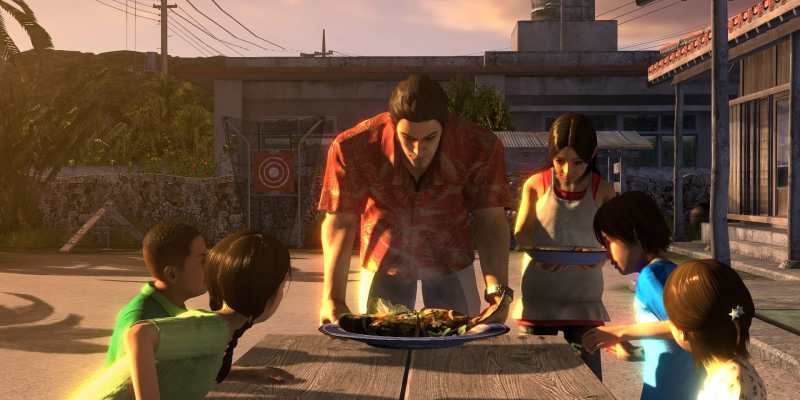The Yakuza (now Like a Dragon) series is one you need to play to truly understand. Its expert pairing of crime syndicates and silly gags set in a rich Japanese setting is tough to describe. Yakuza packs in free-flowing combat, deep storytelling packed with emotions and sheer grit, and welcome distractions for sidequests. It’s no surprise that Yakuza is slowly garnering praise from audiences outside Japan.
Yakuza 0’s heartfelt narrative brought many newcomers into the series before guiding them towards the excellent Yakuza Kiwami and Yakuza Kiwami 2 remakes. But after such fine dining, Yakuza 3 shows up like an odd gap in the pavement. The Remastered edition polishes its visuals, but many fans consider it the weakest in the series, owing to pacing issues. I started the game with cautious optimism, only to discover others’ views on the game were dead wrong.
A man known for his strong sense of justice, protagonist Kiryu doesn’t start this game in the cooking pot of the Tojo Clan’s turf wars. Instead, Dad Kiryu opens an orphanage in Okinawa to teach kids the way Shintaro Kazama inspired him as an orphaned child. While earlier titles were quick to show his nobility and empathy, Yakuza 3 takes Kiryu’s kindness to task, shining brightly amidst an underworld of self-serving greed.

Most of Yakuza 3 takes place at Morning Glory, an orphanage with nine kids whose names I knew by heart before the end credits rolled. Despite not being related to these kids, Kiryu helps mold their sense of right and wrong, their sense of nobility and kindness. He passes the torch by doubling down on Yakuza’s brand of comedic and genuine storytelling. Haruka, the oldest child at the orphanage, is a notable highlight thanks to a strong bond formed from the previous games.
Despite being a child herself, she quickly learns from Kiryu and is no less than a second caretaker at Morning Glory. Grocery runs with Haruka are a nice touch too. When the game’s plot demands you to head to Tokyo, she gives you a plane ticket. Tears were shed, and they weren’t hers. Trusting her to take care of the orphanage reminded me that adults didn’t have it all figured out either.
The other kids have their moments to shine too. Koji teaches Mitsuo how to play baseball. Mitsuo and Riona learn that people can be beautiful irrespective of their appearances. Ayako’s selflessness at the cost of herself hit a bit too close to home. Shiro standing up to his bully was another relatable moment. Izumi rescues a stray dog and the entire sequence left my heart full. And not everything shines like the boxes that surface at the beach in front of Morning Glory.

Eri steals money from Ayako to watch a movie but learns from her mistake. Kiryu even manages to cover it up among the kids. Taichi is into wrestling and is heartbroken when he is falsely diagnosed with asthma. Kiryu trades a life of catching hands and crime for a Hawaiian shirt, solving pocket money issues, and cooking dinner. I can’t blame the dude. His kids even wait for his return before starting their meals. Kiryu taking off his shoes wherever he enters Morning Glory is a little touch that I could never stop noticing.
While Kiryu ultimately gets involved with the local yakuza once again, a good portion of Yakuza 3 exists outside fistfights and manhunts. I understand that this strays from the core gameplay aspects of the Yakuza series. Fans and critics alike were up in arms over the game’s leisurely pace, stating that the game “got good” only about one-third of the way in when Kiryu returned to Kamurocho, the Tojo Clan’s home turf. Ideologies and knuckles clashed, meaning that things were as they should be in a Yakuza game.
But I can’t help but yearn for a Yakuza spinoff that focuses more on Yakuza 3’s light-hearted moments. Where some see trivial sidequests, I see an opportunity to flesh out Kiryu’s humanity and cement him as a hero of the downtrodden. Families can be tough, and I could relate to the little conflicts that strengthened the bonds at Morning Glory. Yakuza 3 proves that its wackier tone can be paired with quiet moments and not just blockbuster goose chases. For once, a former yakuza wasn’t writing his story in blood. He chose a wholesome detour instead.
